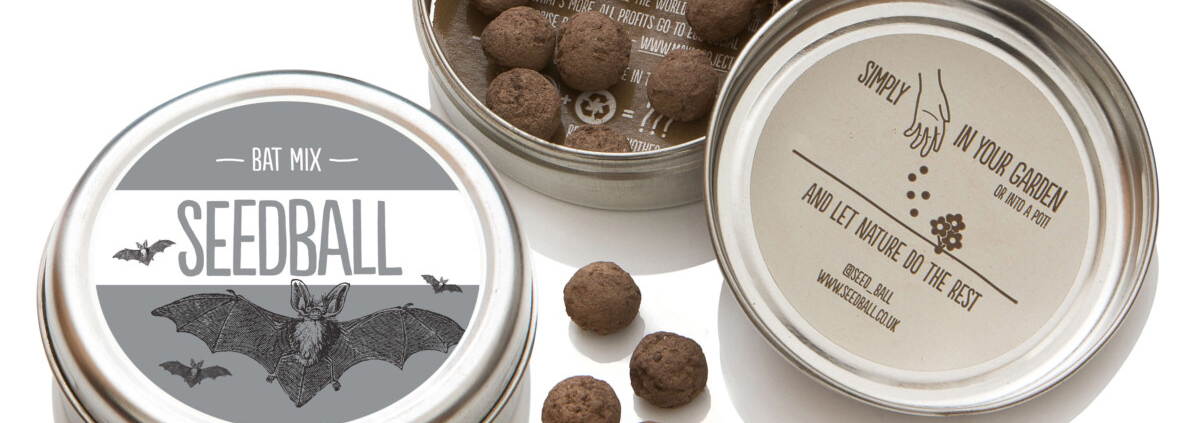Welcome winged wonders to your garden
Welcome winged wonders to your garden: Think of pollinators and bumblebees, butterflies and beetles may come to mind – but the humble bat also plays a huge role in this vital work. Disruptive wildflower company Seedball is encouraging people to celebrate the importance of this mammal for International Bat Night, held this year between Saturday 26 and Sunday 27 August.
The night has been arranged by the Bat Conservation Trust and is designed to raise awareness of this special animal, which pollinates over 500 plant species, including some mangoes, guava, banana and agave, which is used to make tequila. Over 70 per cent of bats – and 100 per cent in the UK – also feed on insects, and as such play an important part in controlling the numbers of pests. They have massive appetites, and a tiny Pipistrelle bat alone can eat over 3000 mosquitoes in one night!

Welcome winged wonders to your garden
Bats’ excrement is also a fantastic fertiliser, known as guano. Bat guano comprises of roughly ten per cent nitrogen, three per cent phosphorus and one per cent potassium – a mixture which helps plants thrive and encourages their bright green colouring, boosts root growth and promotes strong, healthy stems. So, bats in a garden is a great sign that your plants will be benefitting from this brilliant natural fertiliser, helping your flowers bloom stronger, for longer.
Unfortunately, increased use of pesticides means that many British bat species are in decline, as they go hungry from lack of insect prey. Many are also faced with fewer roosting places due to a decline of natural habitats, meaning they struggle to get that all-important slumber during the day. In fact, one third of Britain’s most highly threatened mammal species are bats.
At Seedball, founders Drs Emily and Ana Attlee are encouraging people to plant wildflowers which will entice bats – whether that’s in a garden, balcony or even pots on a windowsill. The Bat Mix tin contains wildflower seedballs specially selected to attract a wide range of insects that bats feed on, including flowers that release their fragrance at night when bats are most active. The mix contains plant seeds with a combination of long and short pollen tubes, and a variety of colours and shapes of flowers to maximise the number of insects they attract – creating a delicious and well-rounded diet for bats! The seedballs contain borage, cornflower, corn marigolds, evening primrose, wallflowers and night-scented stock – which will not only encourage bats to visit but will also look beautiful too.
Dr Ana Attlee said: “Bats are a much-misunderstood creature, but here at Seedball we love them! They play such an important part in pollinating plants, getting rid of pests and keeping our soil healthy, and we encourage people to enjoy these furry visitors – as they are a sign of a happy, healthy garden. Our Bat Mix can be sown between August and October, so we’ll be celebrating International Bat Night on Saturday 26 August by scattering some seedballs and welcoming more bats over the coming months.”
For more information, visit https://seedball.co.uk/product/bat-mix/.
For the latest industry news visit turfmatters.co.uk/news
Get all of the big headlines, pictures, opinions and videos on stories that matter to you.
Follow us on Twitter and Instagram for fun, fresh and engaging content.
You can also find us on Facebook for more of your must-see news, features, videos and pictures from Turf Matters.









